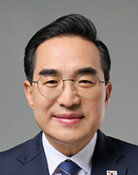Quiet vacationing becomes popular among Millennials
Quiet vacationing becomes popular among Millennials
Posted May. 31, 2024 08:13,
Updated May. 31, 2024 09:05

Forbes reported on Wednesday that quiet vacationing, which refers to partaking in office workarounds in vacation destinations outside the office without formal communication about their vacation, is becoming popular among the American Millennials.
The new concept of quiet vacationing was created, following quiet quitting, which is a term formed during COVID-19 to refer to doing minimum requirements during set time to avoid layoff. While quiet quitting focuses on not doing any more work beyond what’s paid, quiet vacationing highlights the sentiment of wanting to work more freely in a comfortable environment instead of the office where pressure from the manager is too much.
According to a survey of 1,170 workers conducted by Harris Poll from April 26 through April 28, 37 percent of the Millennials responded that they have taken time off without communicating it to their managers or employers. This contrasts the fact that only 24 percent of Gen X and Gen Z, respectively, answered yes to the same question.
Those who prefer quiet vacationing are mostly young professionals. They do not formally request vacation because of the pressure to meet deadlines and improve productivity. They feel worried that they might look lazy while getting paid a lot by requesting vacation.
Another reason for such behavior is that quite many companies and managers expect employees to work even during an official vacation. In the survey, 86 percent of all respondents said they received emails from the manager during their vacation.
Quiet vacationing is met with mixed opinions. Critics say that it is unethical to work less than usual without formally applying for a vacation, and it can also affect colleagues. Others say that professionals experiencing burnout or feeling undervalued can focus on work better and improve productivity after a little time off to recharge themselves.
Meanwhile, some argue that increasing the number of paid days off to prevent quiet vacationing is not ideal. According to Harris Poll, workers with 11 to 15 paid days off per year are likely to use up those days, while those with 16 or more paid days off are significantly less likely to use all of the days off.
김윤진 기자 kyj@donga.com




![[단독]“거부도 못해” 요양병원 ‘콧줄 환자’ 8만명](https://dimg.donga.com/c/138/175/90/1/wps/NEWS/IMAGE/2026/03/02/133450041.2.jpg)


